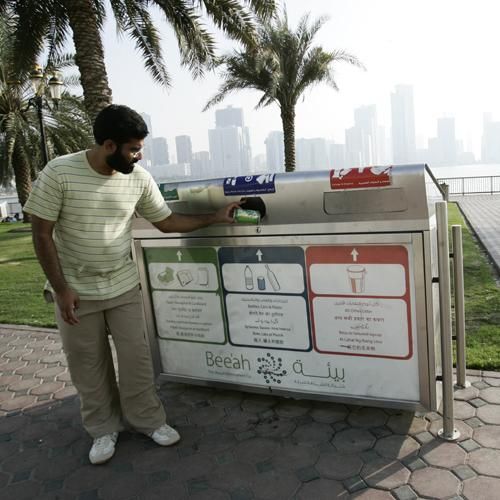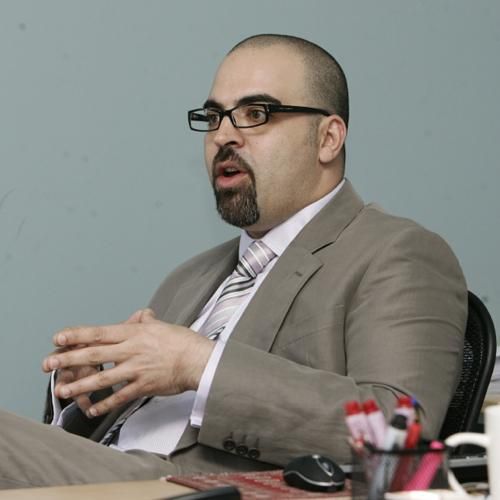Dubai: A giant plant rising on the sands outside Sharjah has the capacity to transform virtually all of the emirate's recyclable junk into a variety of useful products.
According to the Sharjah Environment Company (Bee'ah), its new Materials Reclamation Facility (MRF) coming up in Al Saja'a should be able to process 850,000 tonnes of trash per year from October onwards.
Recycling monster
It will chew up small hills of waste plastic, paper, glass and other rubbish and crank out neat cubes of recycled materials that can be used for laying public roads, or making up room flooring, sports tracks and even playgrounds.
The Dh150 million project is expected to cut down pollution in Sharjah by diverting 70 to 80 per cent of recyclable waste away from landfills, said Samer Kamal, Managing Director at Bee'ah. Landfills usually have to be covered with soil every day to reduce the risk of leaks or fires.
They are also magnets for scavengers, not to mention the stink they raise for miles on end. And most of the 235 square kilometres of Sharjah is covered by industrial areas that sprawl outwards from residential zones into the open desert.
A top waste-maker
Kamal said UAE residents rank among the most wasteful in the world, with each person producing over 1,350kg of garbage every year, on average.
With around 800,000 people in Sharjah alone, that adds up to more than a billion kilos of solid waste annually. “We're the world's biggest consumers. If everyone was like us, there would need to be 13.8 planets like the Earth to feed our consumption rate, according to research by WWF (World Wide Fund for Nature).''
Bee'ah has already installed 500 recycling bins across Sharjah and delivered thousands of its signature blue trays to apartments and offices to collect “anything recyclable''. The trash is currently handed over to several small-scale recycling projects nationwide. Kamal said projects like these will help people “express their responsibility towards the environment''.
Bee'ah is also planning a tyre recycling facility to annually turn two million rubber tyres into material for laying roads, among other uses. There are already around seven million used tyres in Sharjah depots – and 2,500 extra roll in every day.














